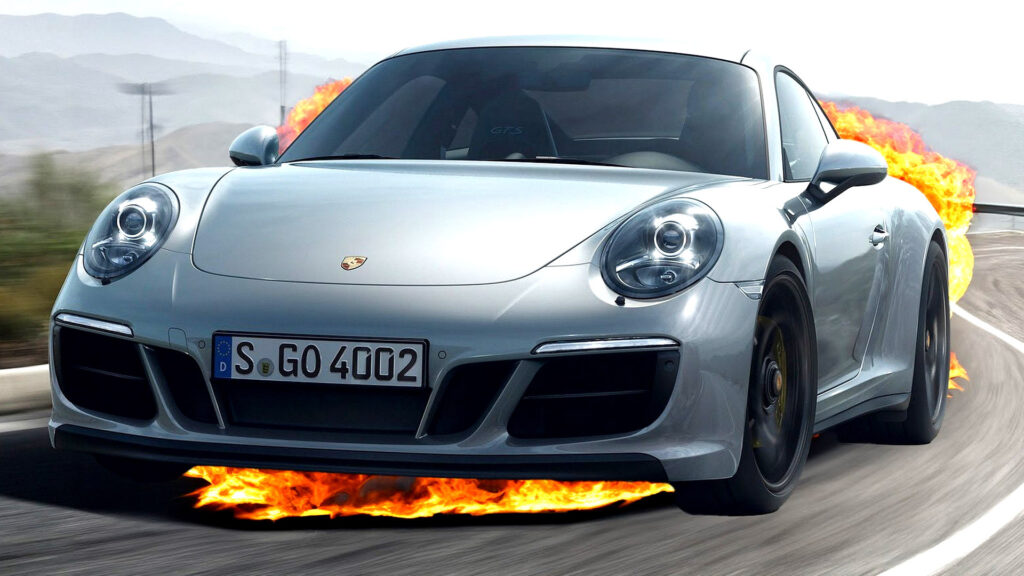Imagine Owing Taxes So Bad You Light Up Your Porsche 911

- A 2018 Porsche 911 burned in rural Paraná, Brazil, over the weekend.
- Police say security footage shows the owner setting it on fire himself.
- The car had outstanding tax debts, and the case is under investigation.
Imagine the feeling of getting a call from the police that they’ve found your stolen Porsche 911, but that it’s been burned to the ground. No doubt, that would be rough for anyone, but for one man in Brazil, the call got even worse, because police think he’s the one who did it – and it seems like the video evidence they possess is pretty convincing.
Read: A Prototype Exploded Inside Faraday Future’s HQ Leaving The LA Building Condemned
The incident happened in Lapa, a rural town in the Curitiba metro region of Brazil. According to local outlet G1.globo, the owner told the police that he was the subject of an ambush.
Armed individuals in a truck stole his car with him in it, drove it down a deserted road, and then set it on fire. In fact, he went to the hospital for burns, which initially seemed like clear evidence of his credibility.
Caught on Camera
State Highway Police didn’t just take the man at his word, though. It turns out that of all the rural roads in the area, the place where the Porsche burned down, just happens to have a security camera nearby.
Police say that the man who walks up to the car and sets it on fire bears a striking resemblance to the owner. The clothes even matched, and police think they know what the motive was, too.
Evidently, the 911 in question, reportedly worth around R$700,000 (roughly $120,000 USD) was subject to expensive unpaid tax debts. The Civil Police in the area confirm that the situation is under investigation of being a false crime report. That said, they haven’t released the name of the owner, nor have they made any arrests.
A Fiery Mistake
Video from the scene doesn’t show any kidnappers, a truck, or anyone other than the man who allegedly sets the car on fire. Whoever it is seems to stop and take a moment to consider what they’re about to do before lighting some sort of accelerant in the Porsche. The fire is so violent at first that the man in question recoils as it grazes him.
It’s unclear where the case will go from here, but hopefully justice will be served. If this owner did indeed set his very special car on fire in front of the only camera within miles, it feels like karmic justice.